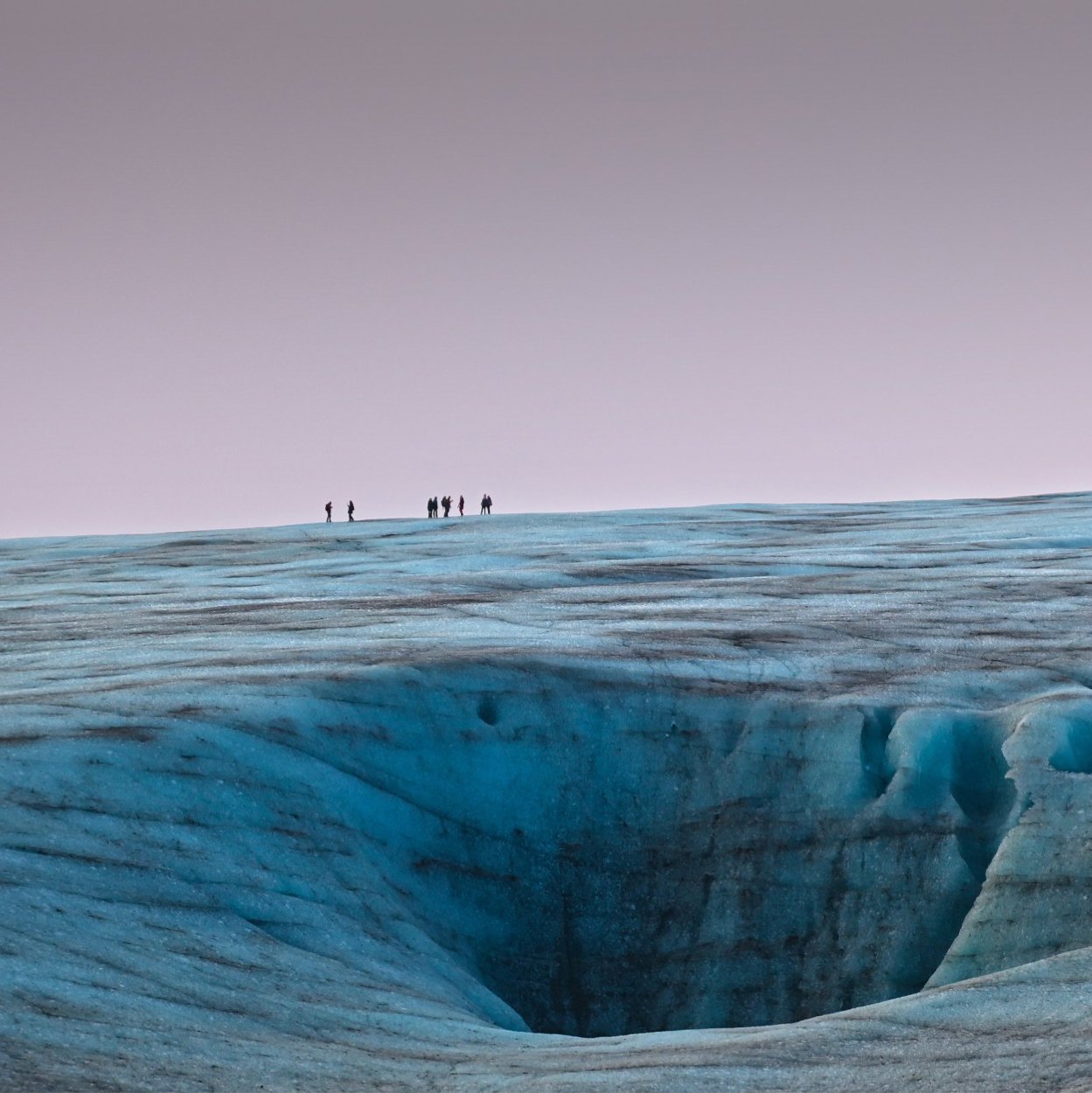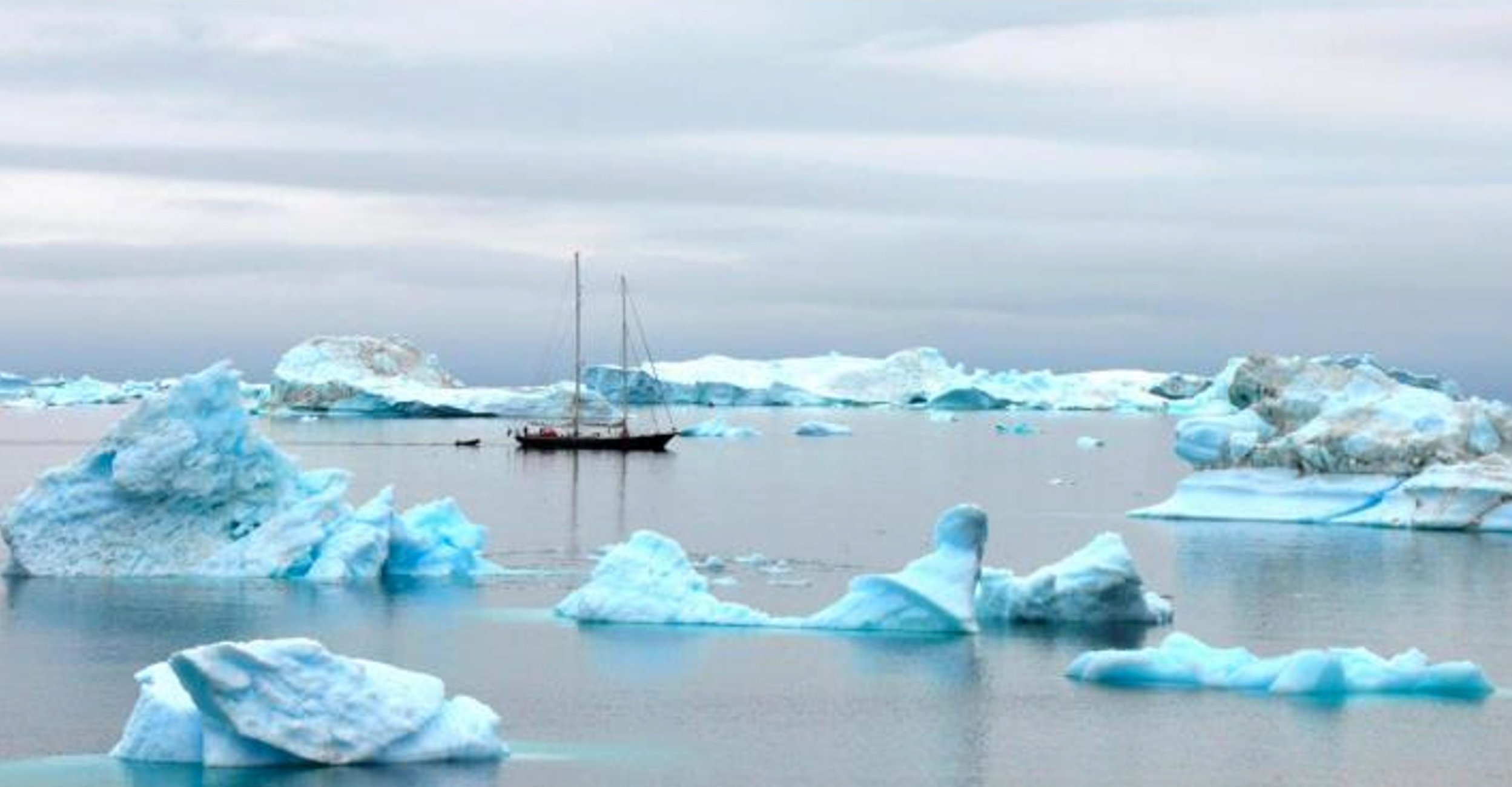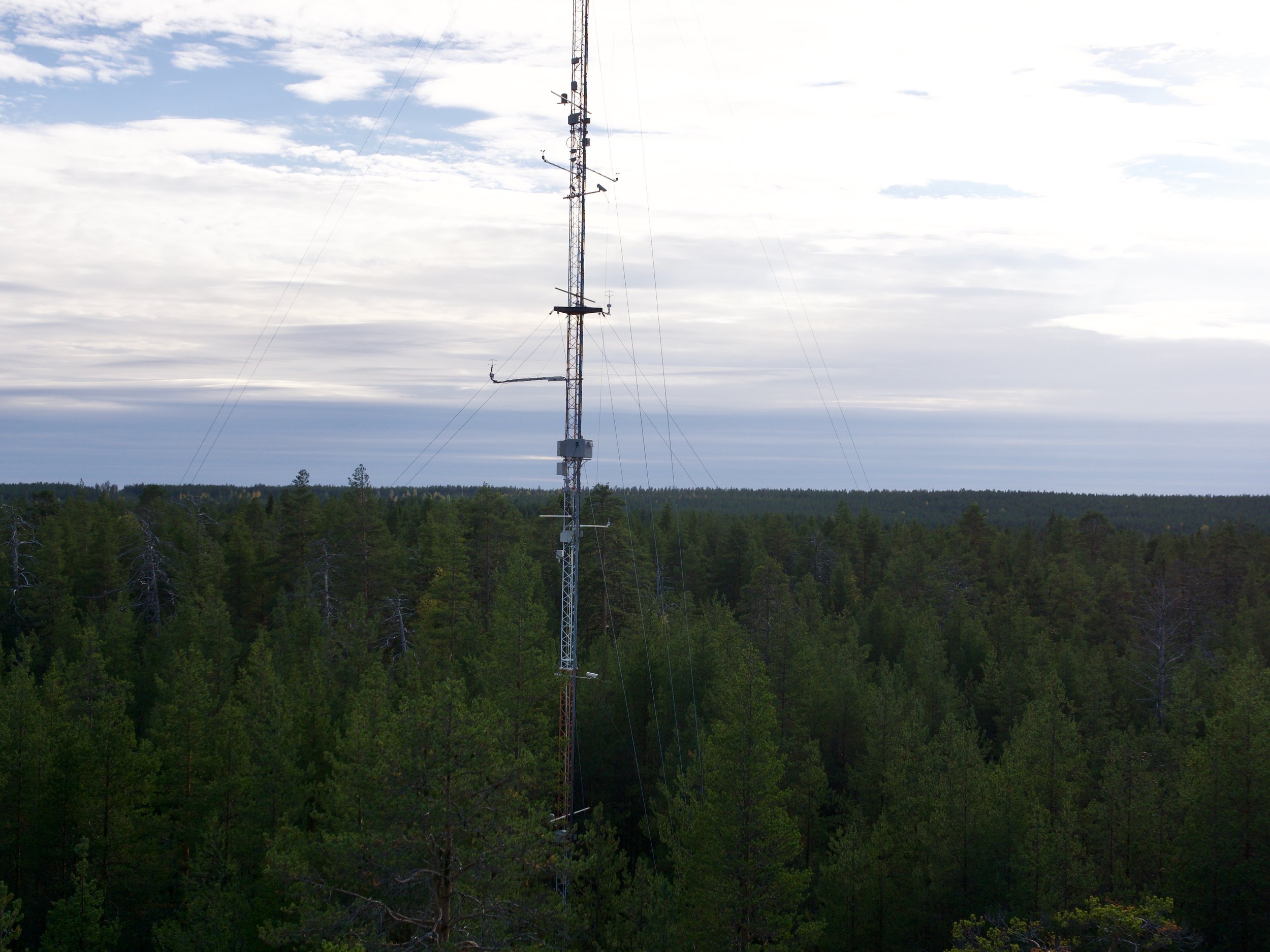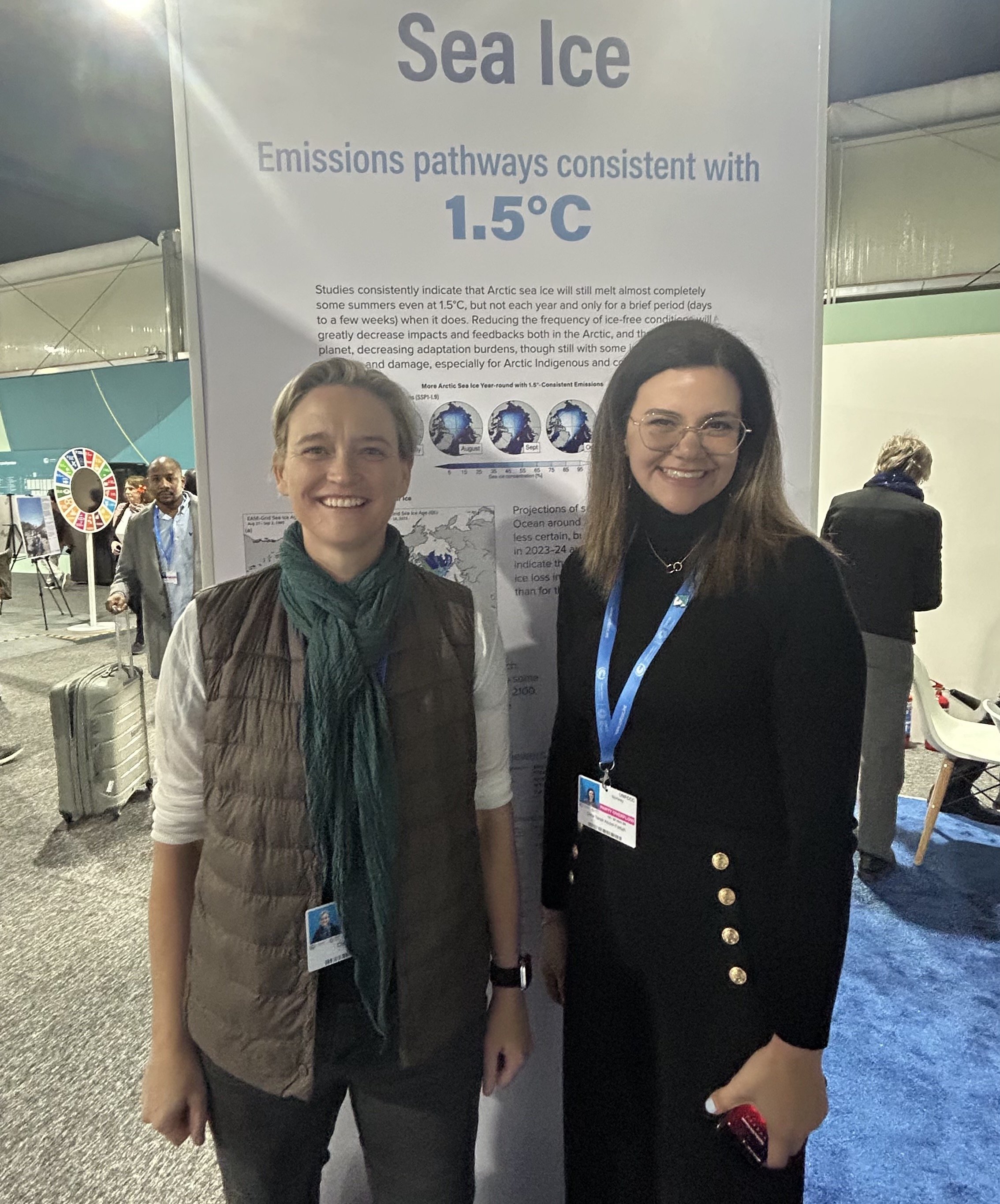
World Meteorological Organization’s Global Cryosphere Watch launches revamped website
The World Meteorological Organization’s Global Cryosphere Watch (GCW) has launched its redesigned website that enhances both its functionality and user experience. The site serves as a key gateway to the GCW Data Portal, providing users with access to valuable cryosphere metadata. GCW and PCAPS are closely interconnected, with GCW's efforts in advancing cryospheric observation, data standardization and data sharing contributing to PCAPS' objective of providing more accurate and reliable analyses and predictions in polar regions.

Meet the PCAPS SG: Reflections from PCAPS SG member Gita Ljubicic on improving weather and ice services for Inuit communities
This month’s Meet the SG blog post features PCAPS SG member, Gita Ljubicic, who is a Professor in the School of Earth, Environment and Society at McMaster University in Hamilton, Canada. Gita is a geographer with training in the natural and social sciences. Her work is driven by a deep commitment to respecting and learning from Indigenous knowledge alongside science to address complex social and ecological challenges. Gita and her StraightUpNorth research team are dedicated to a cooperative, community-engaged approach to research that involves developing and fostering working relationships with Indigenous experts and organizations throughout all stages of the research process. Within PCAPS, Gita contributes her social science experience, and perspectives from working with Indigenous communities, to inform more user-driven design so that polar prediction services can be more relevant, accessible, and useful.

Year of Polar Prediction (YOPP) synthesis paper published
In February 2025, the final synthesis paper from the Year of Polar Prediction (YOPP) was published, showcasing the breakthroughs made possible by the World Weather Research Programme's Polar Prediction Project (PPP). Launched in response to an urgent need for better polar forecasts, PPP/YOPP revolutionized environmental prediction in these remote and sensitive regions, improving forecasting systems used worldwide and changing how we understand polar-mid-latitude interactions. PPP/YOPP laid the strong foundation that PCAPS builds upon, helping to further improved environmental forecasting and well-being in both the Arctic and Antarctic regions.

PCAPS at the University of Oslo’s Geosciences Career Day 2025
On 12 February 2025, the Department of Geosciences at the University of Oslo (UiO) hosted its annual career day for geoscience students. It provides an opportunity for students to learn about and explore career paths as they near the end of their studies, while also allowing companies and projects to showcase their work. PCAPS Communications Fellows Amanda Skogjordet and Linn Bolin Haakenstad presented about PCAPS during the 2025 UiO Career Day, sharing their experiences with UiO students regarding their own early career engagement work.

Advancing coupled Arctic forecasting: Insights from the Workshop on Coupled Modelling and Observations in the Marginal Ice Zone
The Workshop on Coupled Modelling and Observations in the Arctic Marginal Ice Zone (MIZ) took place from 10–12 February, 2025 in Oslo, Norway, funded by the Norwegian Research Council and the Norwegian Meteorological Institute. This workshop is part of the WWRP-PCAPS endorsed SvalMIZ project, whose main objective is to enhance observations and modeling in the Arctic. It brought together approximately 45 researchers from various disciplines related to the forecasting of weather, sea ice, and wave dynamics in the Arctic to discuss challenges and advancements in coupled forecasting systems.

Meet the PCAPS SG: Reflections from PCAPS SG member, Paola Rodriguez Imazio, after her recent Antarctica field campaign
This month’s Meet the SG blog post features PCAPS SG member, Paola Rodriguez Imazio, who is a researcher at the National Weather Service in Argentina. Paola is a physicist and her research is centred on turbulent mixing and dynamics in the Antarctic atmosphere. Paola brings knowledge about Antarctic atmospheric dynamics and related research activities in the Antarctic Peninsula to PCAPS. She is also the lead of one of WWRP - PCAPS’ endorsed projects: the Turbulence in Supercool Clouds in Antarctica (T-SCAN) project.

GOAT Workshop brings international experts to KOPRI, Republic of Korea, to address Antarctic climate change
Last week, the GETZ Initiative (GETZ-Ocean Interactions: Sentinel of Antarctic Transition to a Warming Climate - GOAT) held its first in-person workshop at KOPRI, bringing together 34 participants from across the world, both in person and online. The three-day workshop (February 11-13, 2025) marked a milestone in establishing this collaborative research effort that is focused on understanding the rapid changes occurring in West Antarctica's Getz region. PCAPS steering group members Clare Eayrs and Daniela Liggett participated in the discussions to shape future research in the Getz region.

PCAPS at Arctic Frontiers 2025: The road to IPY 5 (2032 - 2033) and exploring decision-making for climate hazards in the Arctic
Arctic Frontiers 2025 took place in Tromsø, Norway from 27 - 30 January. Dina Abdel-Fattah, PCAPS International Coordination Office (ICO) Manager, presented about PCAPS in the International Polar Year (IPY) V: Research, Data and Science Cooperation session. In addition, Dina co-hosted two events for early career researchers during Arctic Frontiers, as a follow-up from the NordForsk-funded Scenario Analyses Regarding Climate Change Hazards and Critical Infrastructures in the Arctic (CCCI) PhD summer school that was held at the Norwegian Meteorological Institute last summer (12 - 16 August 2024).

Meet the PCAPS SG: Reflections from PCAPS Co-Chair Daniela Liggett
This month’s Meet the SG blog post features PCAPS Co-chair Daniela Liggett, who is a Professor at the University of Canterbury in Christchurch, New Zealand. Daniela is a social scientist, whose research focusses on human engagement within Antarctic environmental governance. Daniela’s expertise spans a vast array of interdisciplinary knowledge and perspectives that support her co-chairwomanship of PCAPS, via which she helps to ensure that PCAPS’ objectives are met through an integrated approach.

Reflections from AGU24: The importance of communicating scientific uncertainty for cryospheric hazards
2024 was a record year for drastic changes in the cryosphere. Against this backdrop, the annual American Geophysical Union (AGU) 2024 Fall Meeting took place in Washington DC from 9 to 13 December 2024, with many sessions focused on improving our monitoring of, as well as our response to, rapid changes in the cryosphere. There, Dina Abdel-Fattah, Manager of the PCAPS International Coordination Office, presented her work on the glacial lake outburst floods in Juneau, Alaska, in collaboration with partners from the University of Alaska Southeast and the National Weather Service in Juneau. Malte Müller, leader of the WWRP/PCAPS endorsed project on the Svalbard Marginal Ice Zone campaign, also presented on the project at AGU.

Reflections from Arctic Partnership Week 2024: The growing role of AI in sea ice prediction in a rapidly changing Arctic
As the Arctic undergoes rapid transformation with unprecedented sea ice retreat, it has become both a stark symbol of climate change and an urgent reminder of our need for accurate prediction systems. During the 2024 Arctic Partnership Week (10-12 December 2024, Busan), discussions were centred on sustainable solutions for the changing Arctic. PCAPS Steering Group member Clare Eayrs from the Korea Polar Research Institute participated in two key sessions during “Knowledge Day”: the “Arctic Youth Dialogue” and a KMI-Arctic Frontiers session on “Sustainable Arctic Seas: AI and Environmental Protection”.

PCAPS in 2025: Milestones for the year ahead
Happy New Year’s from the PCAPS team! Though 2025 has just started, we have many exciting plans already underway for this year. As we actively prepare for these milestones and many more, we are happy to see that 2025 is already slated to be another ambitious and inspiring year for the PCAPS community.

PCAPS Year in Review: 2024 highlights and achievements
As 2024 draws to a close, we reflect back on the tremendous amount of work, collaboration, and partnerships that developed this year. This year was PCAPS’ first year and it has been a productive one!

Season’s Greetings from PCAPS!
Happy holidays from PCAPS! We are deeply grateful for the global community’s dedication to advancing polar environmental forecasting through innovation and collaboration, and we look forward to continued progress in the years ahead. We wish everyone a joyful holiday season filled with happiness and well-deserved rest!

Meet the PCAPS SG: Reflections from PCAPS SG member Jelmer Jeuring about social science research for Polar services
We continue our monthly PCAPS highlight blog post series, where we feature each month one of the PCAPS SG members and the exciting work they are undertaking for PCAPS. PCAPS SG member Jelmer Jeuring is a social scientist based at the Norwegian Meteorological Institute. He reflects on how PCAPS aims to benefit from, and strengthen, social science-based knowledge with the aim to enhance the actionability of Polar forecast information services.

Sodankylä supersite: A key role in the European and Arctic weather prediction modelling community
The Sodankylä supersite is an observation site which is integrated into research-based infrastructures, improving observations in the Arctic region. PCAPS' work focuses on enhancing and delivering forecasts in polar regions; the Sodankylä supersite enables PCAPS to provide more accurate predictions and effectively communicate reliable data about these areas.

From ships to shores: The new high-Arctic IWIN weather station network in Svalbard
Over the last three years, an innovative weather station network, the Isfjorden Weather Information Network (IWIN), has been established in Svalbard's Isfjorden region. Led by the University Centre in Svalbard (UNIS) and supported by MET Norway, IWIN expands on the relatively sparse existing network of operational weather stations by installing compact, all-in-one weather stations on lighthouses and tourist cruise ships. IWIN has a strong potential to improve weather forecasting and enhance safety and research in the region. It also serves as an example for how the coverage of in-situ weather data can be enhanced elsewhere in the Arctic. Both of these aspects support PCAPS goal to improve weather observations and weather forecasting in the polar regions.

PCAPS reflections from COP29, Baku, Azerbaijan
PCAPS Steering Group member, Clare Eayrs, and PCAPS ICO manager, Dina Abdel-Fattah, attended COP29 in Baku, Azerbaijan. Dina presented at two sessions - one on cryospheric hazards at the Cryosphere Pavilion and one on the use of AI in the WMO Early Warnings for All initiative. PCAPS presence at COP29 helped reinforce the need for closer collaboration between weather and climate research, and the use of novel technology to help support advances to improve global safety, wellbeing, and resilience.

Meet the PCAPS SG: PCAPS SG member Phil Browne reflects on PCAPS and improving data assimilation in the polar regions
This month’s monthly SG member highlight features PCAPS SG member, Phil Browne, a scientist in the research department at the European Centre for Medium-Range Weather Forecasts (ECMWF). Phil has a background in data assimilation, which is an important focus in PCAPS. Phil reflects on his own role in PCAPS and how his work in PCAPS helps pave the way forward for improved data assimilation and observing systems in the polar regions.

The next generation of polar researchers: PCAPS Communication Fellows share their ideas for what is ahead
Amanda Skogjordet and Linn Bolin Haakenstad are the two PCAPS Communication Fellows, who are based at the Norwegian Meteorological Institute (MET Norway) in Oslo. They share some of their experiences from studying and working on topics related to environmental forecasting and how they see PCAPS supporting other students and early career researchers in the years to come.

